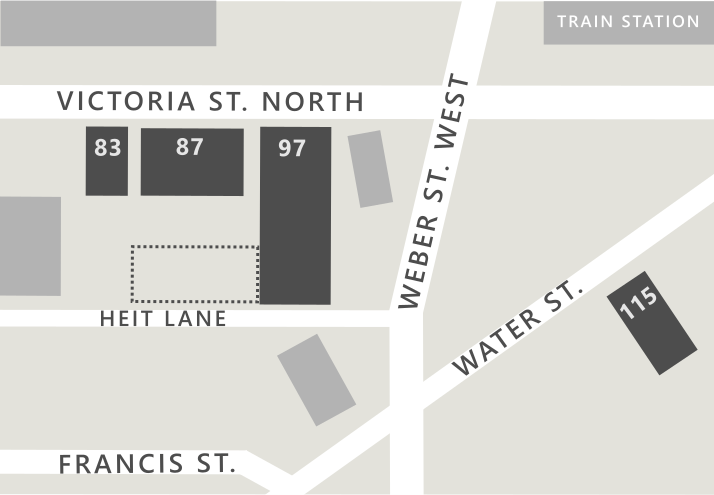Victoria Street North
Victoria Street North
Located near the intersection of Victoria and Weber streets, The Working Centre hosts many vital projects focused on helping the most vulnerable in our community access basic needs, outreach supports, and medical services.
“Community is all of us together, trying to be of help to each other. We are all relatives, kinfolk, some would say: those who receive, give; and those who give, receive.”
-Dorothy Day, co-founder of The Catholic Worker
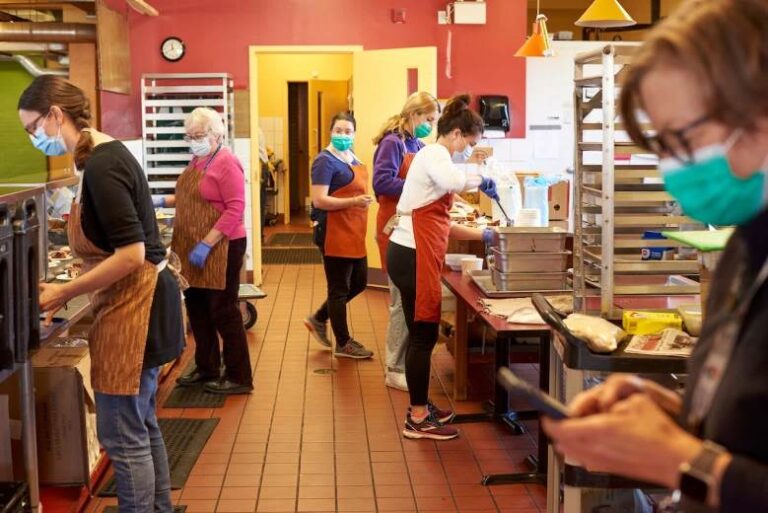
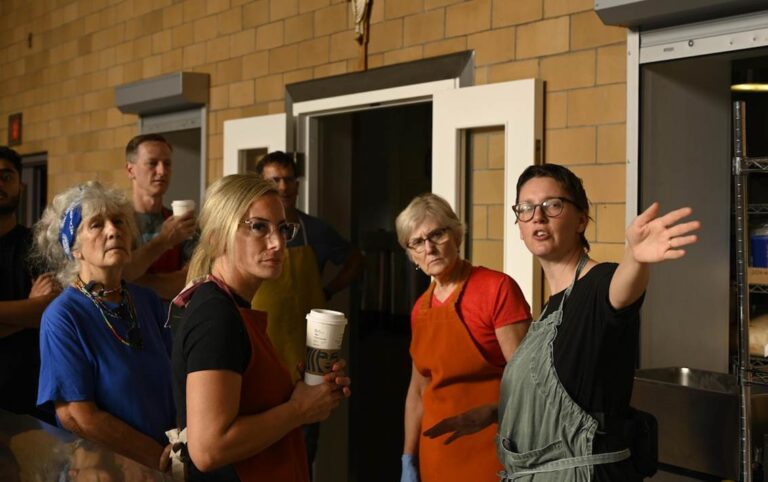
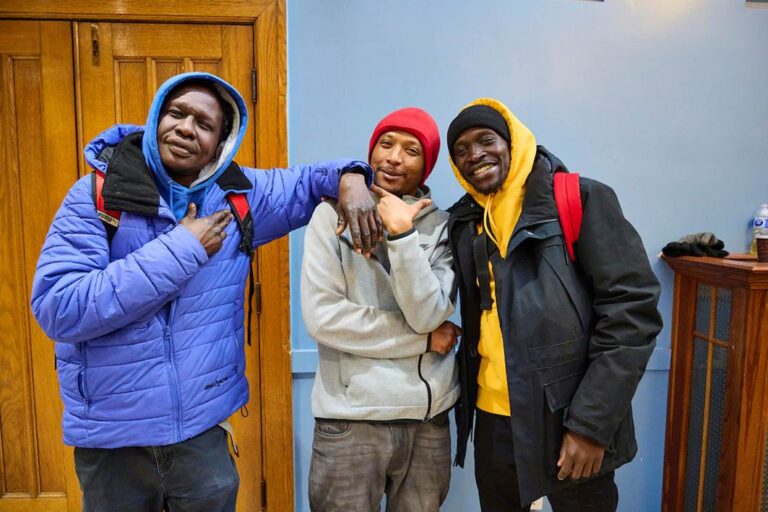
St. John's Kitchen
St. John’s Kitchen is an open community space providing drop-in, outreach and place-based supports.
St. John’s Kitchen started in January 1985 as a downtown initiative when the Core Area Ministry Committee invited The Working Centre to coordinate a project to create a place of shelter that would cook a hot daily meal in the downtown each day. We quickly had the support of St. John the Evangelist Anglican Church at Duke and Water where we were located for 22 years.
Move to 97 Victoria Street North
Major change came in 2006 when St. John’s Kitchen moved to its current Victoria Street location on the second floor of a converted warehouse.
The kitchen and its supports have evolved over time, responding to the needs and challenges of the diverse community it serves; a community that includes many people who are experiencing homelessness, at risk of homelessness, or street involved.

Daily Support
St. John’s Kitchen serves all day as a place of shelter and meals, along with public washrooms, showers, laundry, outreach supports, medical and dental care. It is especially a place of belonging. St. John’s Kitchen welcomes 400 people a day to access meals.
Providing Daily Meals
The commissary kitchen on Queen Street prepares 600 meals each day for distribution to St. John’s Kitchen to community based housing projects and people living in motel rooms.
Making Home at 97 Victoria
In 2023 work began on our Making Home Project to renovate and re-envision the 97 Victoria site. During construction, St. John’s Kitchen has been re-located to St. John’s Anglican Church at the corner of Duke and Water streets in Kitchener.
2025 Temporary Location is at St. John’s Anglican Church, 23 Water Street in Kitchener
Volunteer at St. John's Kitchen
Volunteers are welcome to help with distributing meals, cleaning up, and providing hospitality.
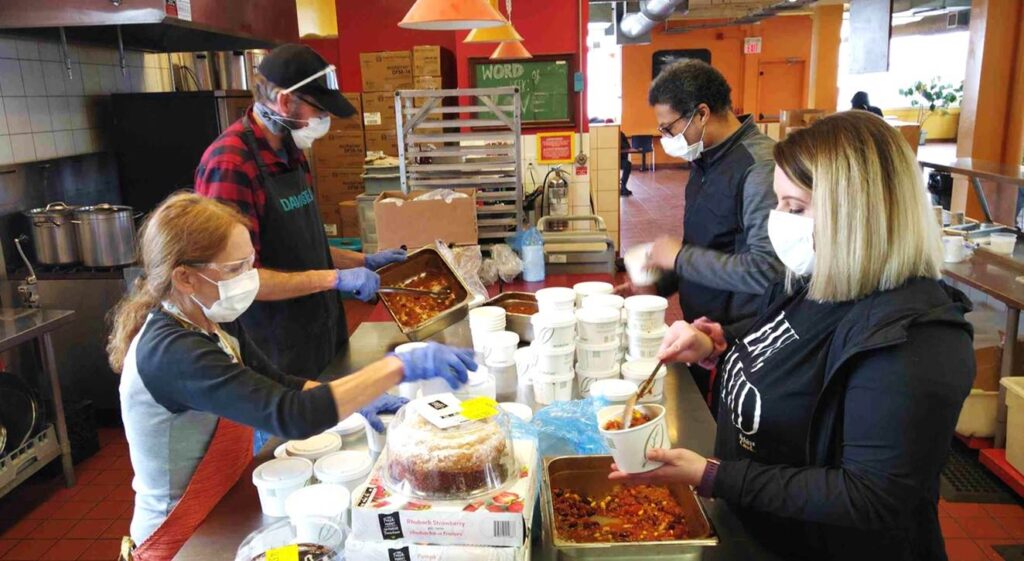
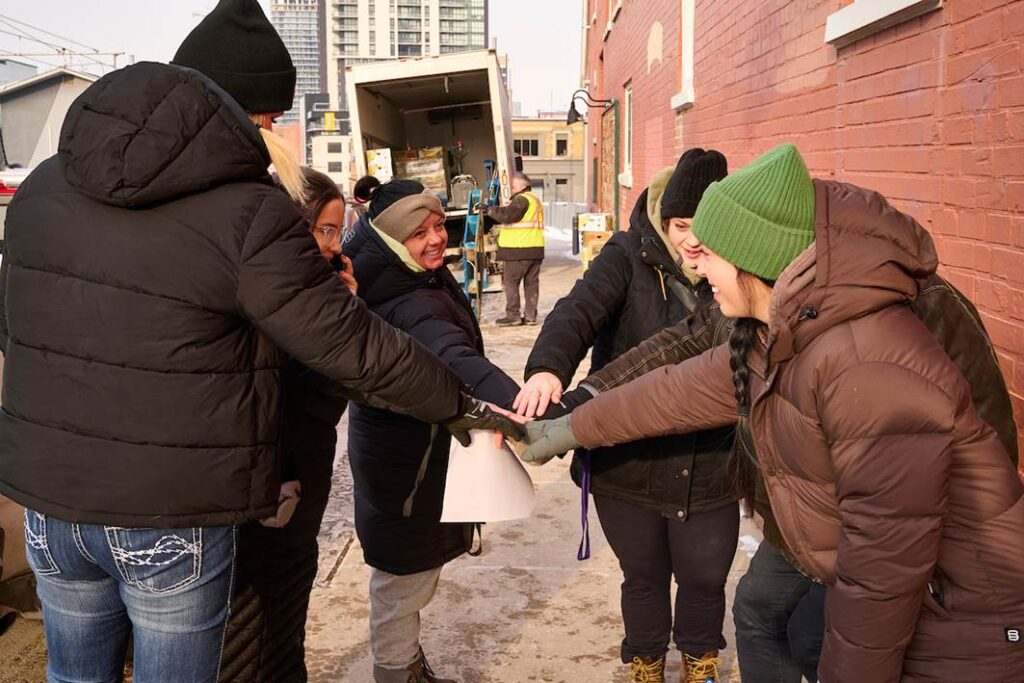
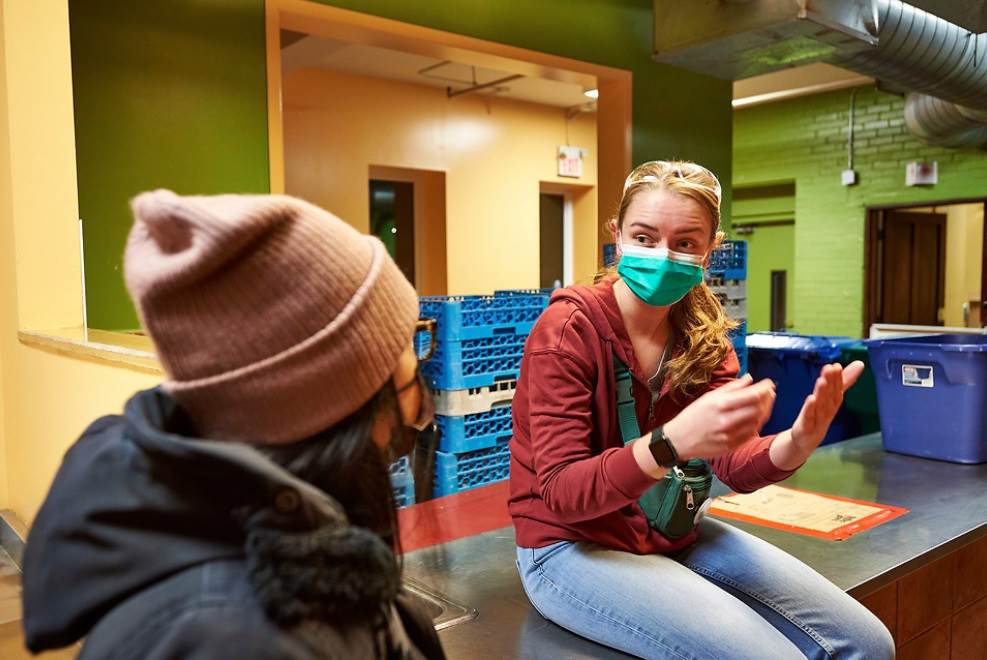
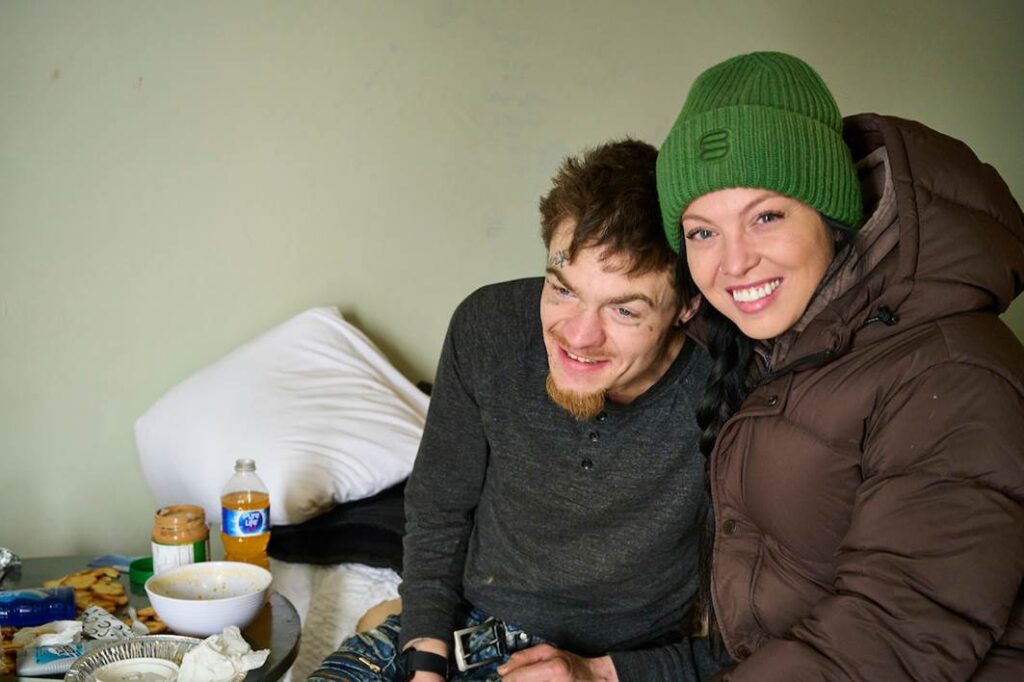
Outreach
Workers from different outreach teams collaborate together in an Integrated Circle of Care Model. They maintain continuous communication with each other and walk with people through relationship to provide support that is flexible, accessible, and never bureaucratic.
Street Outreach
Street Outreach workers are system navigators helping people experiencing homelessness and unsheltered homelessness with basic needs, justice issues, income support, health care and housing. This includes meeting people where they are at throughout the community including downtown areas, the court house, daytime spaces like St. John’s Kitchen, and visiting encampments.
Fixed Outreach
Fixed Outreach workers at St. John’s Kitchen do relationship-based work getting to know and support those who are homeless or at risk. Workers offer conversation and friendship, and when needed, support navigating medical, financial, and housing supports both within St. John’s Kitchen and in the wider community. Core elements of this approach are listening, following each person as a whole person, and responding flexibly to needs that arise.
Housing Outreach
Housing Outreach workers are focused on helping people living unsheltered to obtain housing. This means working on all the necessary supports to assist an person living on the street. One step is ensuring they are eligible for the Prioritized Access to Housing Support (PATHS) and have filled out applications for social housing lists and eligibility for housing subsidies. Housing outreach workers also support people to deal with the justice, mental health, addictions, and income systems in order to coordinate supports.
Specialized Outreach Services (SOS)
Specialized Outreach Services (SOS) is a mobile multidisciplinary team that supports individuals who are experiencing homelessness or are precariously housed in the community and experiencing medical, mental health or substance use concerns. SOS is designed to provide low barrier clinical care to individuals who may have difficultly accessing other traditional supports
Medical Clinic
St. John’s Kitchen has hosted an active Medical Clinic since 2006. Often serving as an alternative to the Emergency Department, people coming to St. John’s Kitchen drop by to access wound care, broader medical care, and problem-solving. We now collaborate with Community Health Caring to host this busy medical clinic, supported by doctors, nurse practitioners, nurses, social workers, outreach workers, a podiatrist, and links to a psychiatrist.
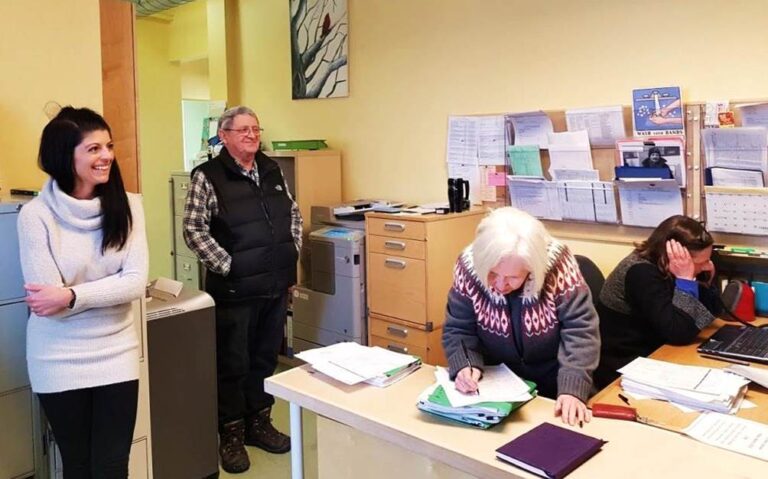
Medical Clinic
The clinic supports access to primary care, mental health and addictions services for people who are homeless or at risk of homelessness with a commitment to helping people to be as well as they can be.
We follow an outreach philosophy that responds to complexity, meeting people in our clinic, on the street, in supported housing, in other organizations, in Mental Health and Drug Treatment courts, responding within a wider circle-of-care supports.
We partner and collaborate with community partners and members of the Inner City Health Alliance in an effort to co-ordinate our supports and improve access to health services for everyone in our community.
“What we have here is a person. He’s human, and he may have schizophrenia, ADHD, or a drug addiction, but first and foremost he’s a person… Respect and kindness shouldn’t be something you add on when you have time for it. You have to start from there.”
-Dr. George Berrigan, St. John’s Medical Clinic, now retired
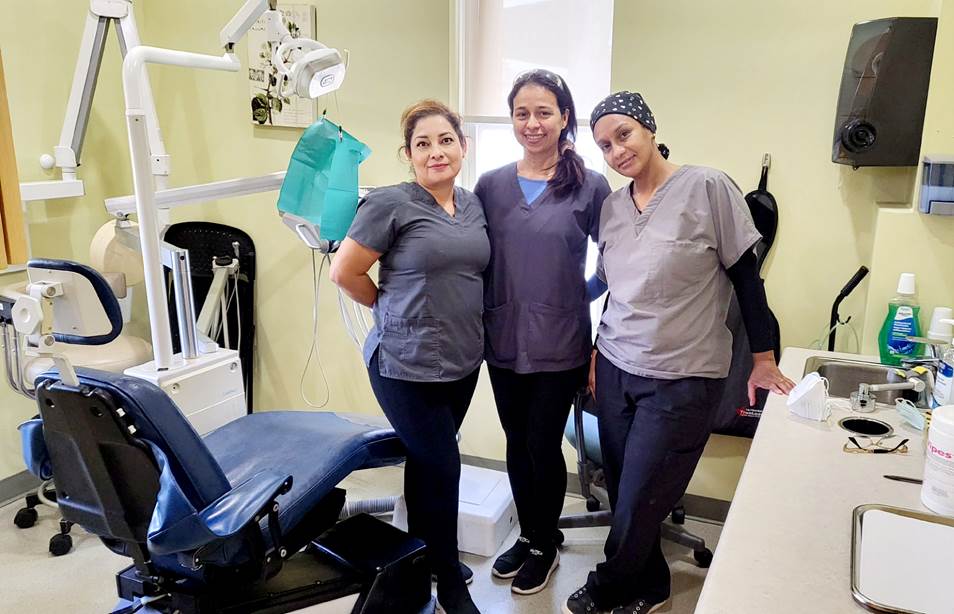
Community Dental
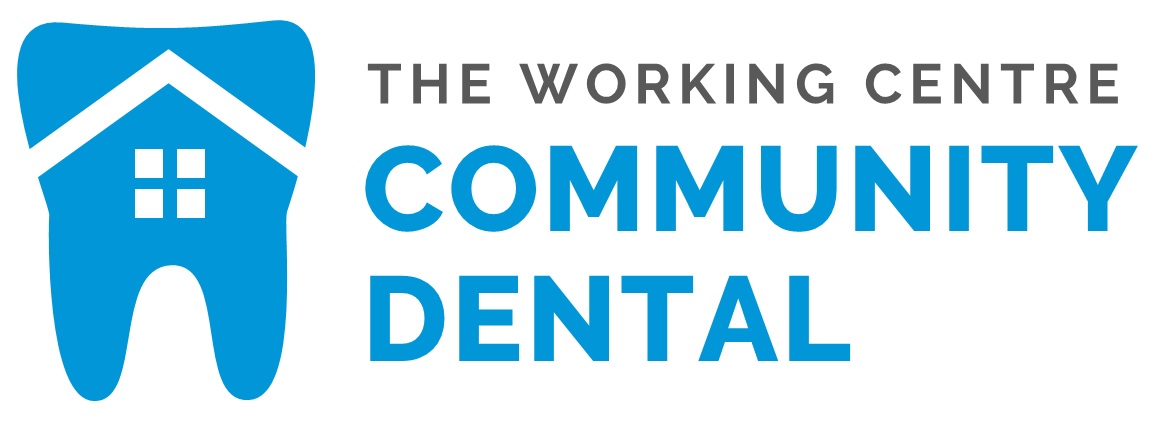
Located at 83 Victoria St. N, Community Dental provides basic dental care for people who are homeless, at risk of homelessness.
We work to build a respectful and non-judgemental environment. The clinic provides free patient-directed care and access to a full range of preventive, diagnostic, and restorative services for those who are typically only able to receive emergency dental care.
The clinic is well equipped, with two operatories, and operates with the volunteer help of dental professionals. The clinic employs a Certified Dental Assistant and operates within a Circle of Care model of support.
Thank you to Accerta for their support of Community Dental.
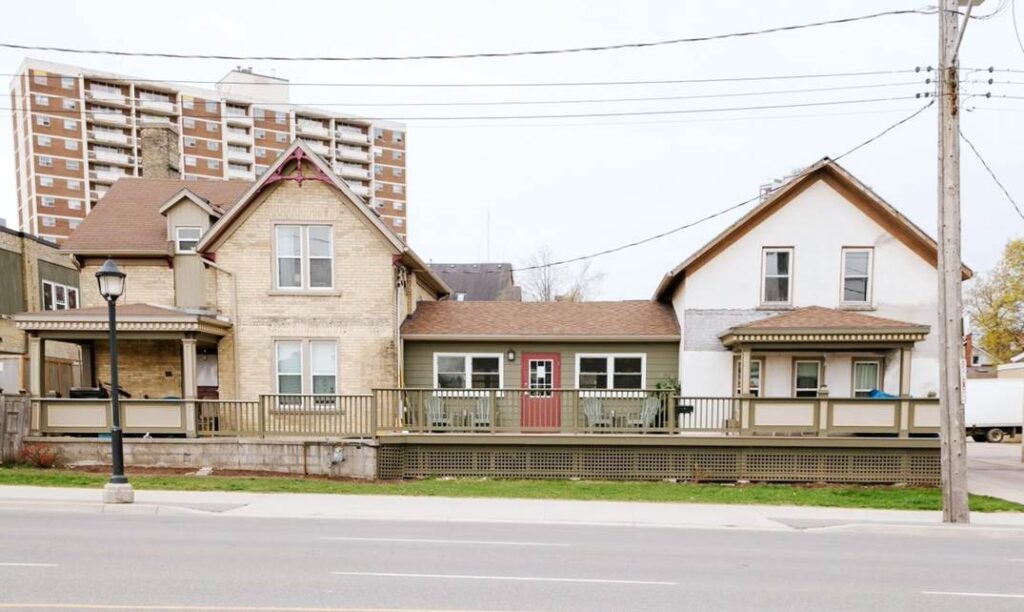
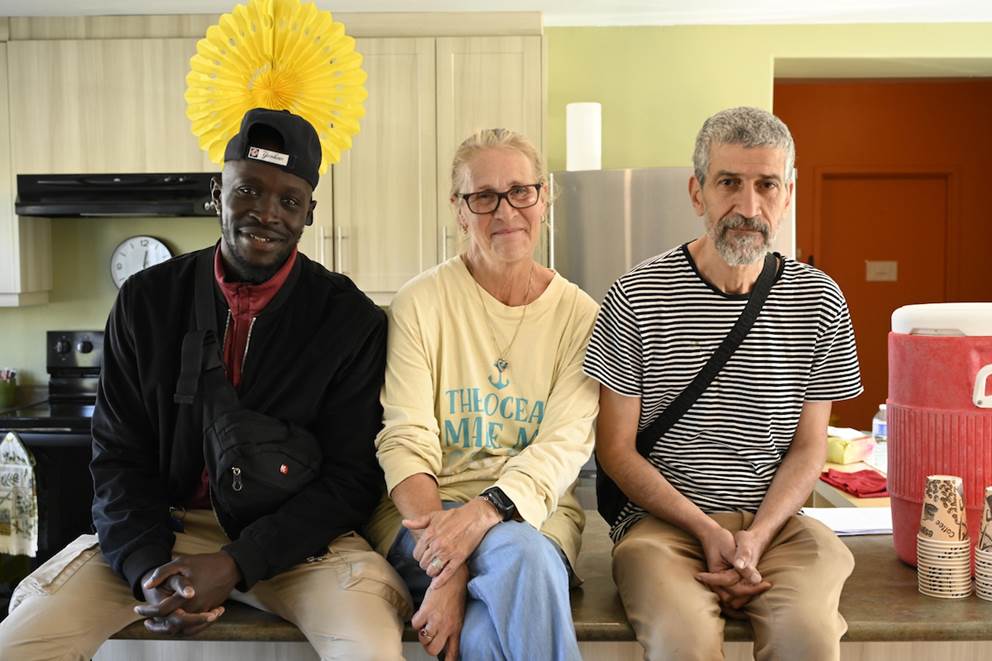
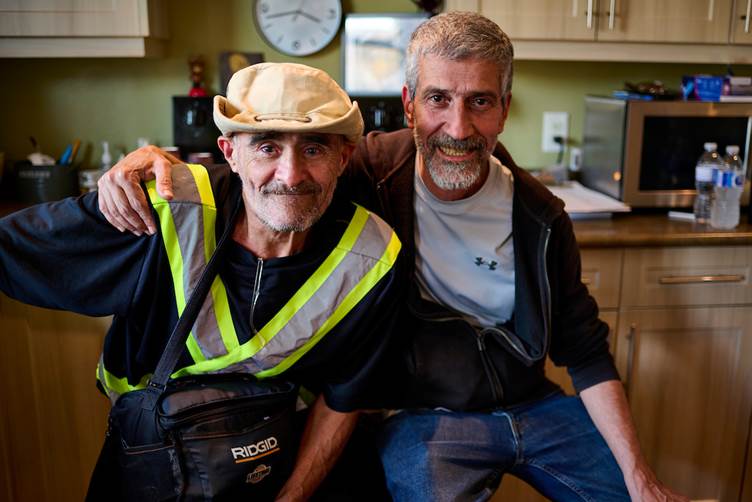
87 Victoria
In 2008, The Working Centre purchased property adjacent to 97 Victoria Street. After renovations, Hospitality House was set up to serve as a home for people who are homeless and acutely ill.
In 2023 and 2024, residents of the former Hospitality House moved to nearby Water Street House during renovations and construction on the 97 Victoria site.
87 Victoria currently operates as a shelter offering washrooms, showers, laundry, and respite from cold weather.
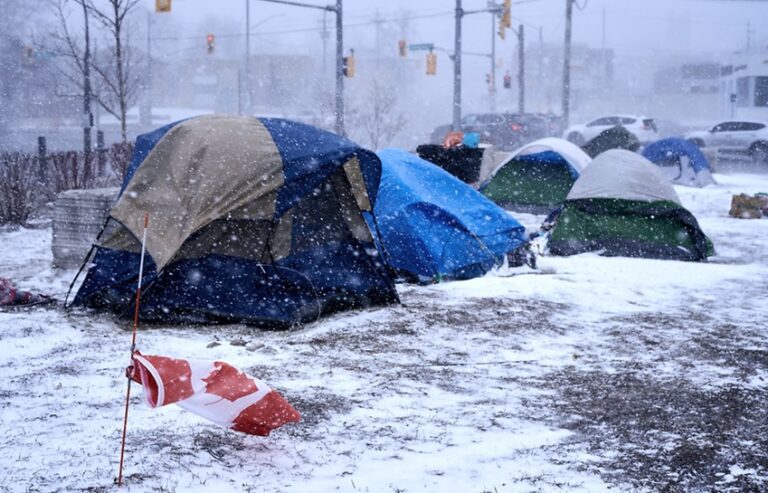
A Community in Crisis
In recent years the housing crisis, inadequate mental health services, and an increase in drug addiction have combined to create a more challenging dynamic at St. John’s Kitchen and in the community our outreach teams support. Encampments, overdoses, and a steep rise in homelessness have led The Working Centre to adopt new strategies and supports in response to these multiple crises.
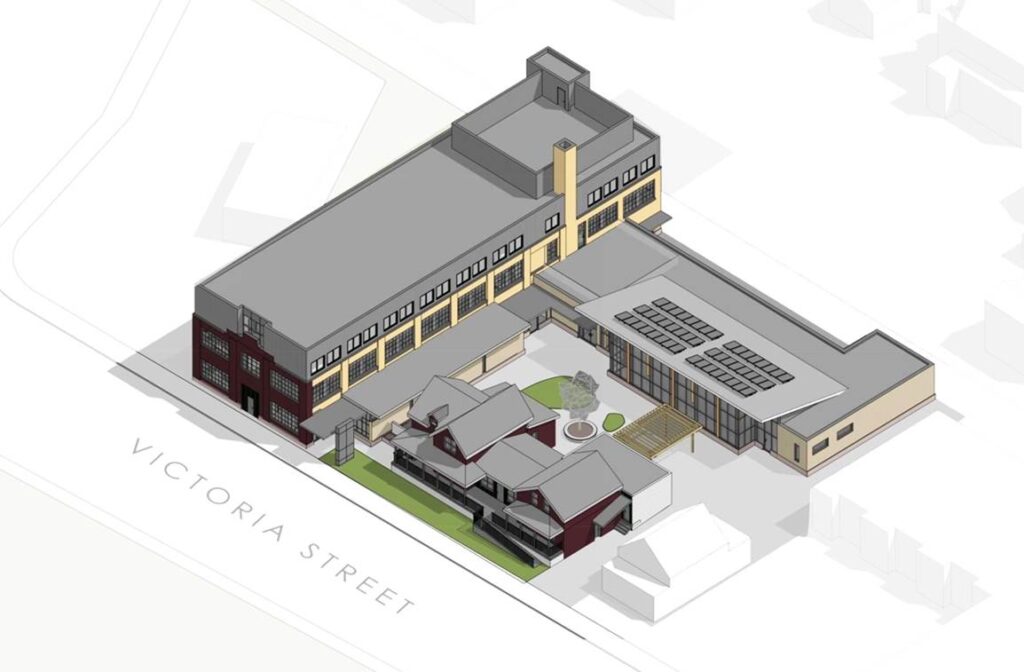
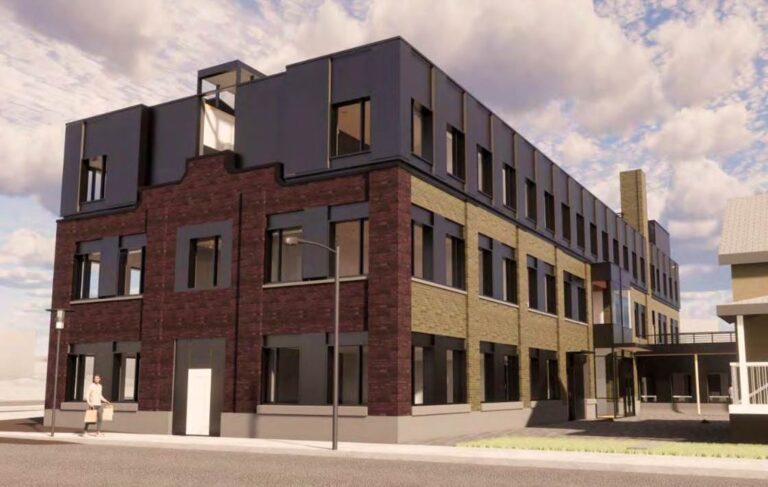
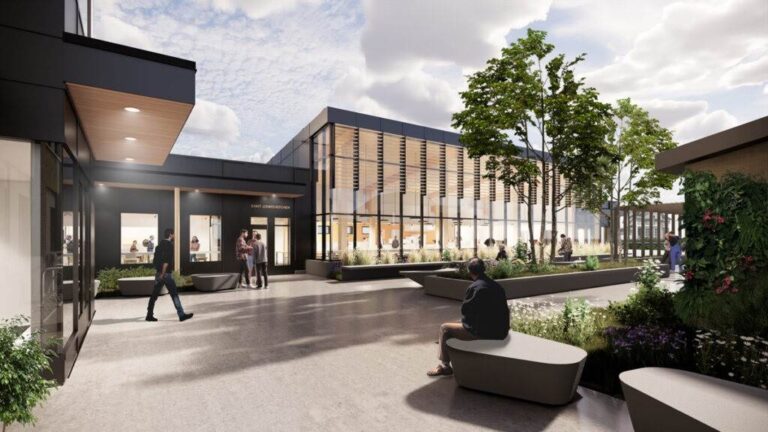
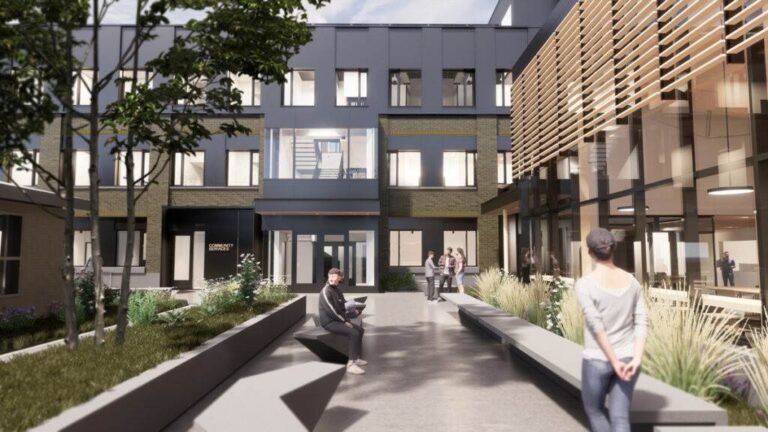
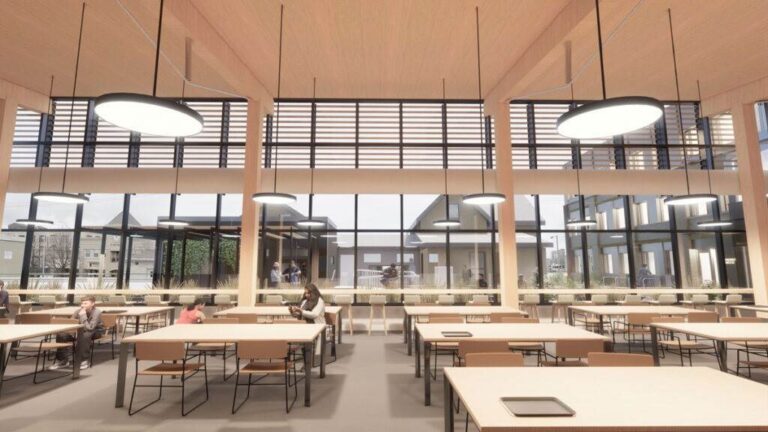
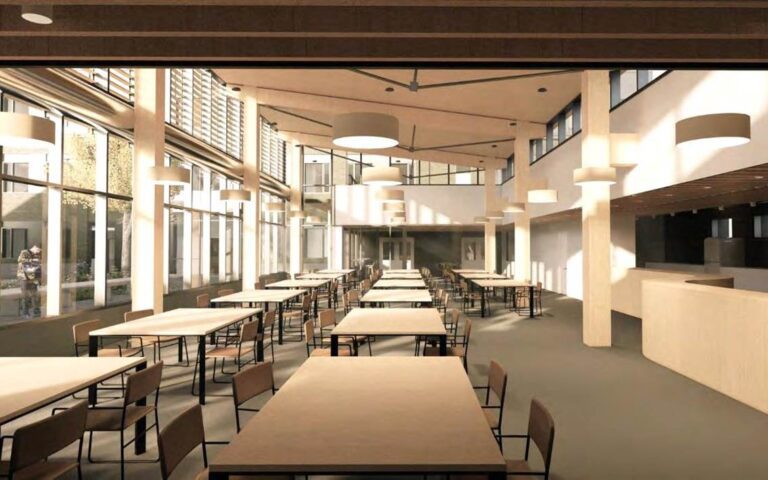
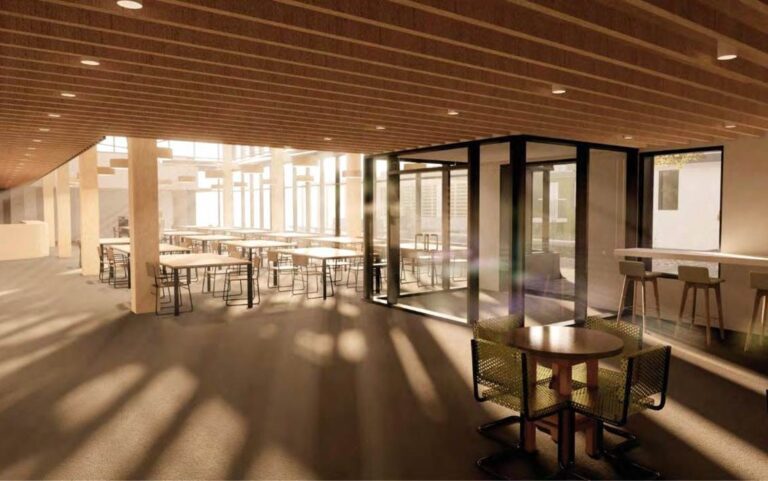
Making Home: Re-envisioning 97 Victoria
Life in congregate shelters and congregate drop-in spaces does serve basic needs in the short term. However it becomes unbearable over time as people lack privacy, rest and a place to feel secure. Housing acts as a foundation. When people have a home, they can live their lives more fully in community.
Housing First is a recovery-oriented approach that supports our community members dealing with the reality of homelessness by providing independent and permanent housing along with additional supports and services. An integrated model of common spaces and supports builds a community that generates roots and connectedness.
Our plan for 97 Victoria includes:
- 44 Units of Supportive Housing
- New Modern Building for St. John's Kitchen
- Integrated Medical Clinic & Outreach Supports
- Community Courtyard
- 24/7 Staff Support
This project addresses the lack of supportive housing units. Every day at St. John’s Kitchen, we support those who have lost connections with family and friends while dealing with mental health and drug issues while struggling to find housing. The new housing will have 24/7 staffing supports, and connections to community and health care resources. Supportive staff will actively problem-solve and help build stability.
For more information or to make a donation towards the project, please visit the Making Home website.
Interim Housing & Shelter
The Working Centre has put a focus on providing safe housing and shelter spaces in response to the increase numbers of individuals without shelter in Waterloo Region.
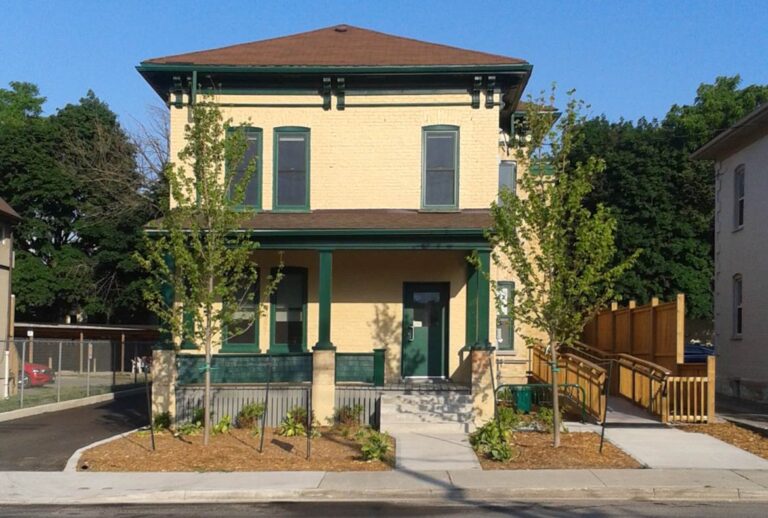
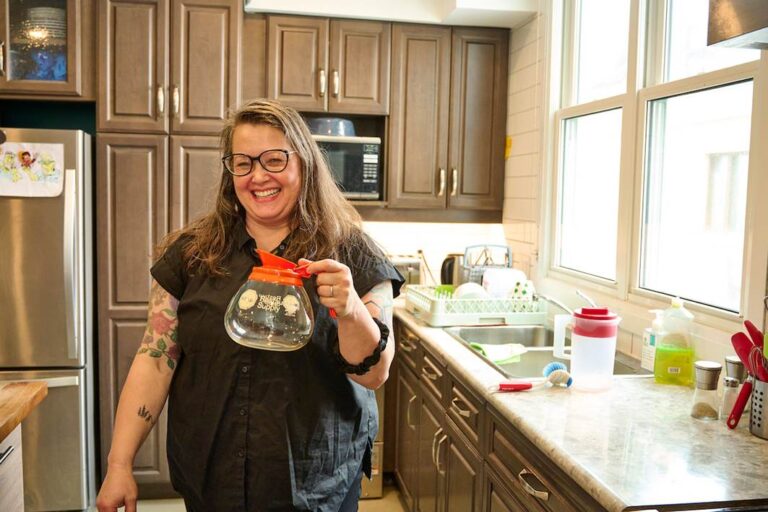
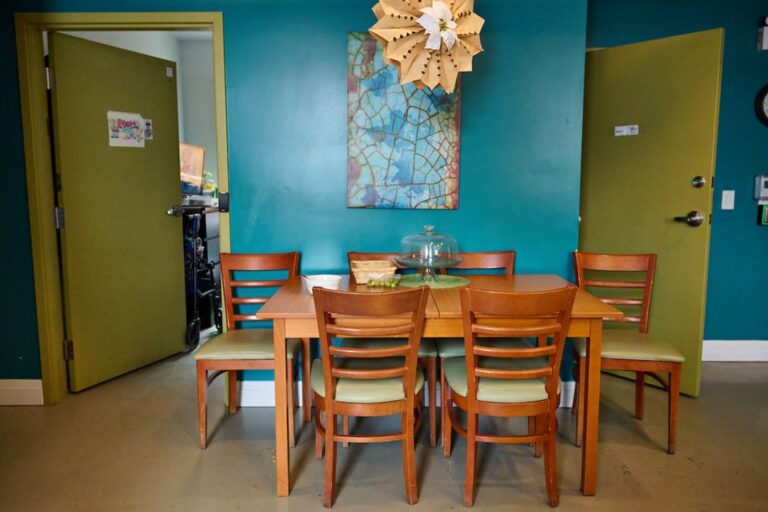
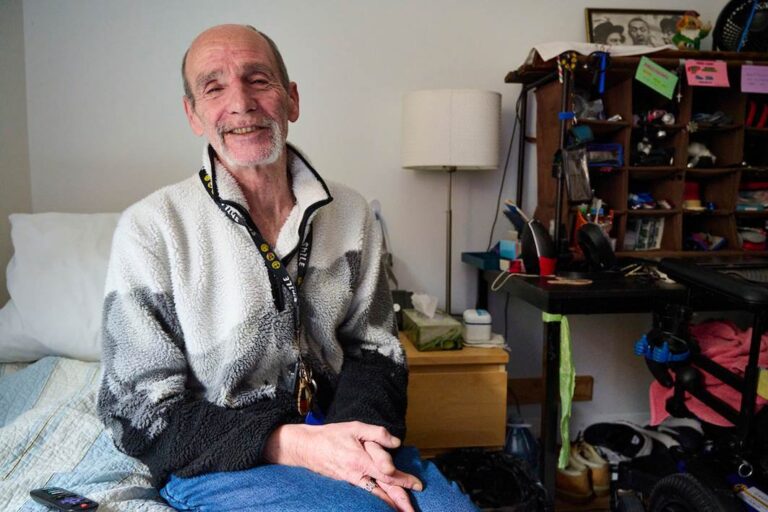
Water Street House
In 2018, The Working Centre purchased property at 115 Water Street – one block from St. John’s Kitchen – to be renovated and rebuilt to provide a place of support and healing.
In the summer of 2019, major renovations began to the exterior and interior of the property. This included demolishing the rear of the existing building in preparation for a new addition. Renovations were completed in July 2020. Water Street House now provides interim beds as shelter and provides multiple strategies for stabilization, support and treatment, helping each person in the best way possible.
Water Street House welcomed residents of the former Hospitality House (87 Victoria) during renovation and construction on the 97 Victoria site, and has expanded and enhanced this health-based harm-reduction housing.
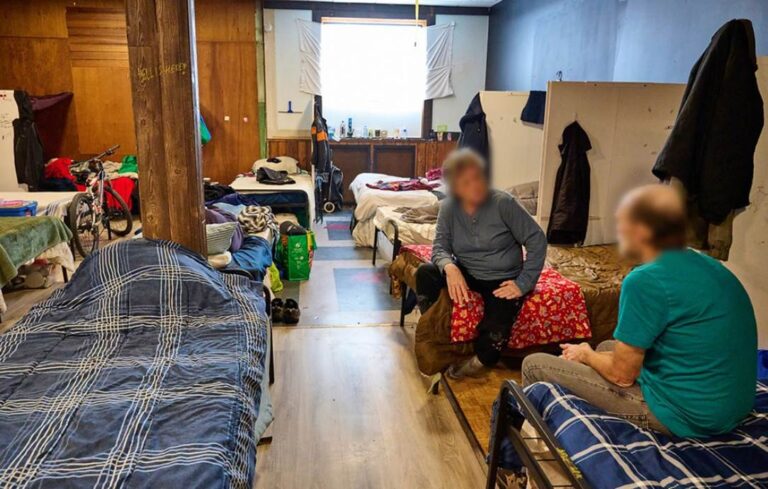
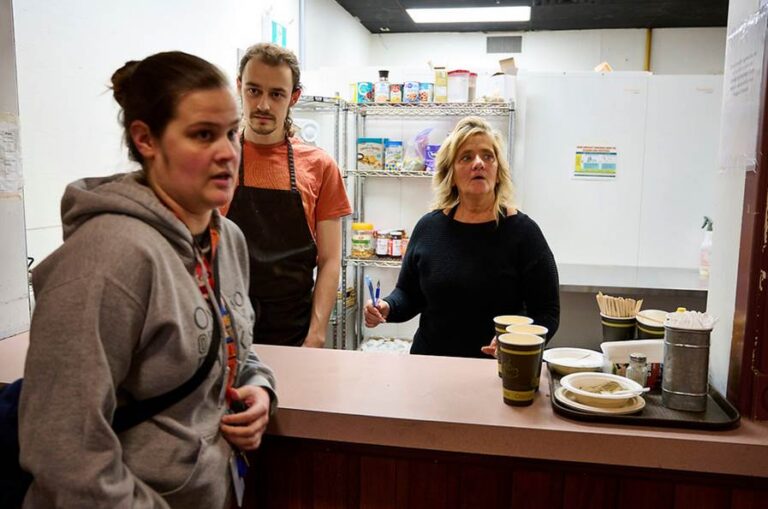
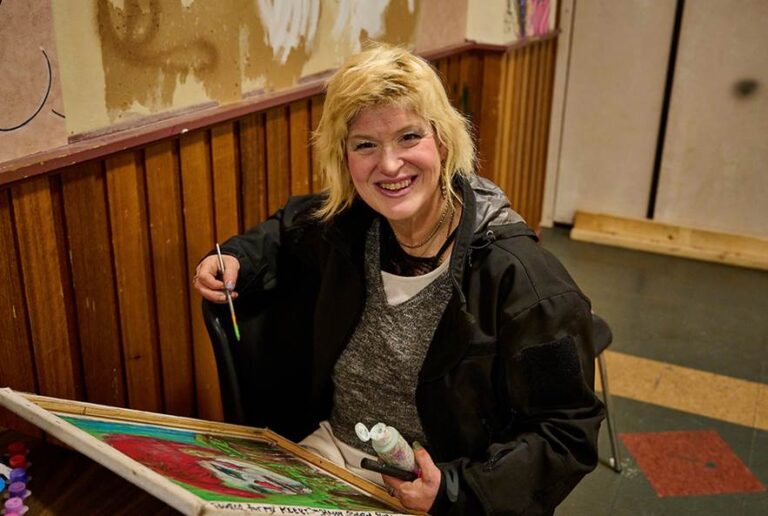
King St. Emergency Shelter
The Working Centre operates an emergency shelter in partnership with the Region of Waterloo. The current shelter is located at 1668 King Street East in Kitchener.
The shelter offers a safe space 24-7 to 100 people and is inclusive to couples and those with pets. A servery provides meals day and night. Washrooms, showers, and laundry are also available.
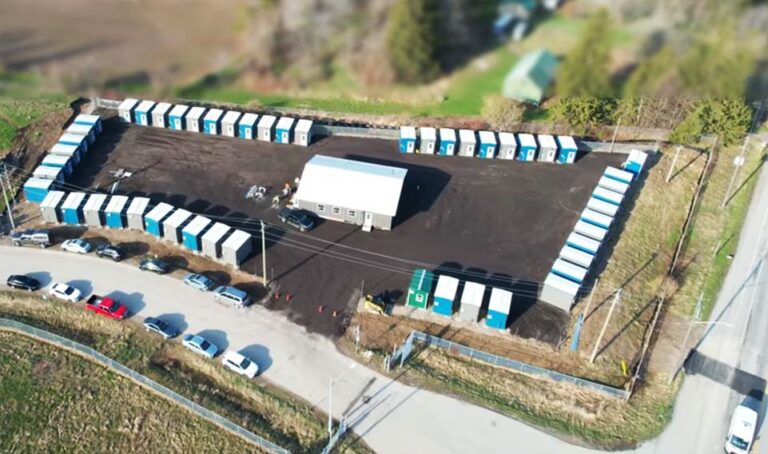
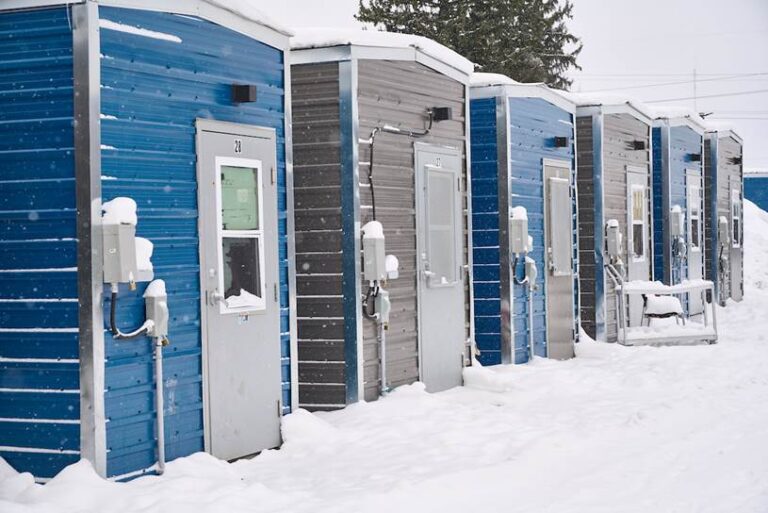
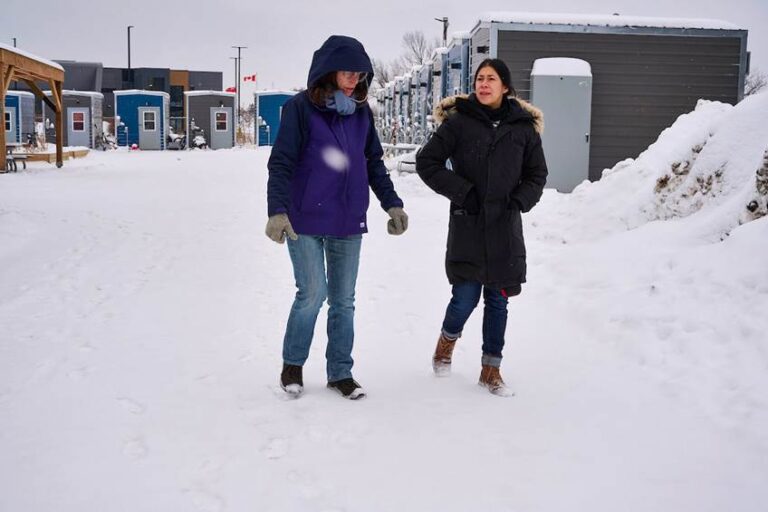
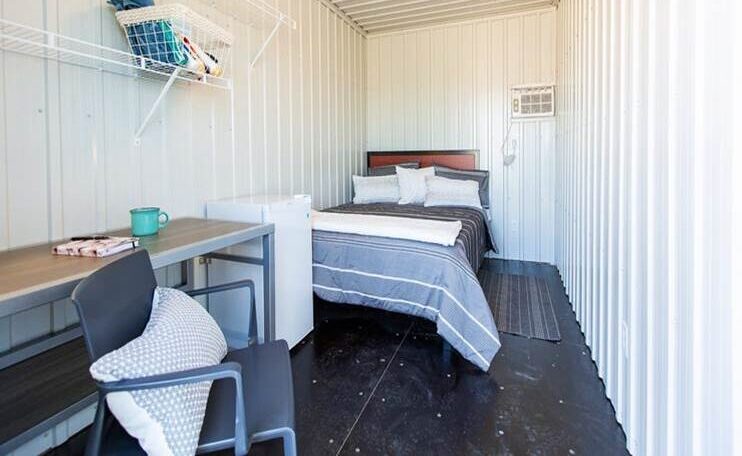
Erbs Road Shelter
Opened in April 2023, the shelter site includes 50 individual 107 sq. ft. cabins and a central larger community centre that includes washrooms, laundry, kitchen, food servery, and space for social workers to connect with residents.
The shelter was built and is funded by the Region of Waterloo Region as part of a strategy responding to homelessess. The Working Centre operates the site providing support staff 24/7, daily meals, transportation for residents, and connections to community resources.
